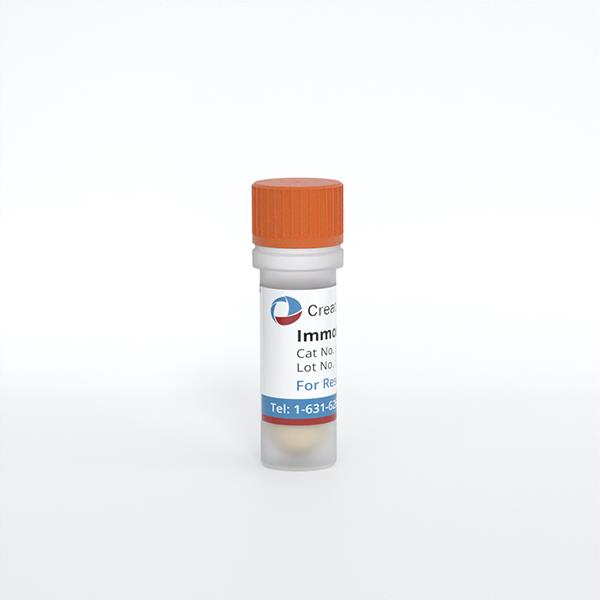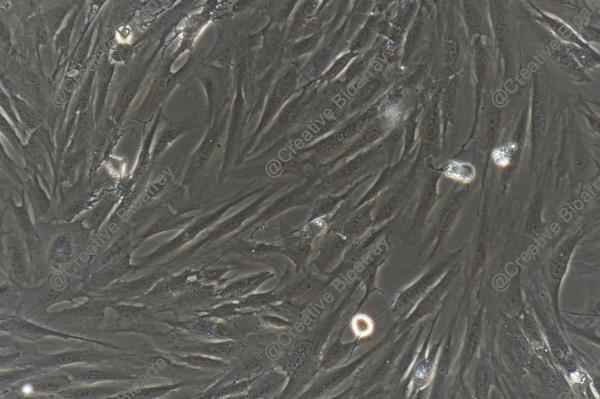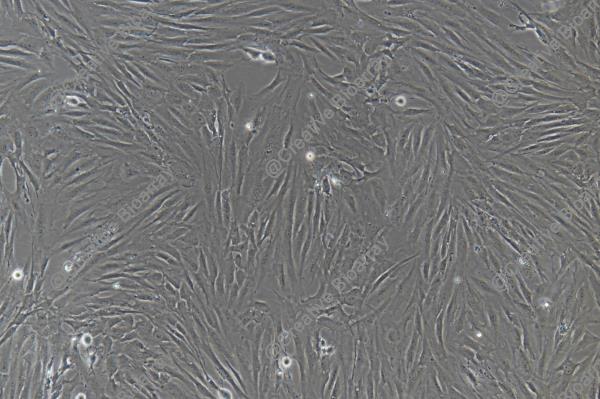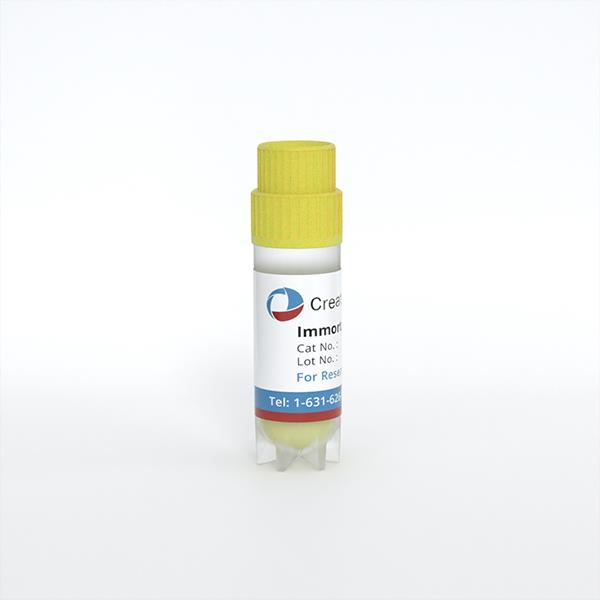Immortalized Human Schwann Cells-SV40T
Cat.No.: CSC-I2111Z
Species: Homo sapiens
Morphology: Polygonal
Culture Properties: Adherent
- Specification
- Background
- Scientific Data
- Q & A
- Customer Review
- Documents
Note: Never can cells be kept at -20°C.
Schwann cells (SCs) play a crucial role in the development, function and regeneration of peripheral nerves. They can enhance both peripheral and central nerve regeneration by providing a supportive environment for neurite outgrowth through the release of neurotrophic factors.
Abnormalities of Schwann cells and/or their crosstalk with neurons and other non-neuronal cells in the peripheral nervous system (PNS) can lead to various types of peripheral neuropathies. Cultured Schwann cells are valuable tools for investigating the pathogenesis of peripheral neuropathies. However, use of primary SCs for in vitro models is limited because these cells are difficult to prepare and maintain in high yield and purity under common cell culture conditions.
Notably, immortalized Schwann cell lines exhibit high proliferative activity while largely retaining the distinct phenotypes of Schwann cells, making them ideal for studying pathogenic mechanisms. Unlike primary cultured cells, which have a limited lifespan, immortalized cells can be passaged indefinitely and are not subject to contact-inhibition when cultures reach confluence.
Multiomic Analyses Reveal New Targets of Polycomb Repressor Complex 2 in Schwann Lineage Cells
Malignant peripheral nerve sheath tumors (MPNSTs) can arise from atypical neurofibromas (ANF). Loss of the polycomb repressor complex 2 (PRC2) is a common event. Previous studies on PRC2-regulated genes in MPNST used genetic add-back experiments in highly aneuploid MPNST cell lines which may miss PRC2-regulated genes in NF1-mutant ANF-like precursor cells. A set of PRC2-regulated genes in human Schwann cells (SCs) has not been defined. We hypothesized that PRC2 loss has direct and indirect effects on gene expression resulting in MPNST, so we sought to identify PRC2-regulated genes in immortalized human Schwann cells (iHSCs).
We identified PRC2-regulated genes and potential drivers of MPNSTs. Our findings support the Notch pathway as a druggable target in MPNSTs. Our identification of PRC2-regulated genes and pathways could result in more novel therapeutic approaches.

Immortalized Human Schwann Cells-SV40T are human Schwann cells that have been genetically modified with the SV40 large T antigen to enable continuous growth and division. This immortalization process allows for extended research use and reliable data generation.
These cells are ideally suited for research in neuroscience, particularly in studies of nerve regeneration and peripheral neuropathies. They provide an excellent model for testing therapeutic compounds, exploring myelination processes, and conducting neurotoxicology assessments.
These cells offer consistent, long-term usability without the drawbacks of primary cell culture, such as limited life span and variability. Their immortalized nature facilitates reproducibility and scalability in experiments, critical for robust scientific research.
Yes, the uniformity and reproducibility of these cells make them highly suitable for drug screening and testing, particularly for compounds targeting nerve repair and neuroprotection, enhancing the discovery of effective therapies.
Ask a Question
Write your own review
- Adipose Tissue-Derived Stem Cells
- Human Neurons
- Mouse Probe
- Whole Chromosome Painting Probes
- Hepatic Cells
- Renal Cells
- In Vitro ADME Kits
- Tissue Microarray
- Tissue Blocks
- Tissue Sections
- FFPE Cell Pellet
- Probe
- Centromere Probes
- Telomere Probes
- Satellite Enumeration Probes
- Subtelomere Specific Probes
- Bacterial Probes
- ISH/FISH Probes
- Exosome Isolation Kit
- Human Adult Stem Cells
- Mouse Stem Cells
- iPSCs
- Mouse Embryonic Stem Cells
- iPSC Differentiation Kits
- Mesenchymal Stem Cells
- Immortalized Human Cells
- Immortalized Murine Cells
- Cell Immortalization Kit
- Adipose Cells
- Cardiac Cells
- Dermal Cells
- Epidermal Cells
- Peripheral Blood Mononuclear Cells
- Umbilical Cord Cells
- Monkey Primary Cells
- Mouse Primary Cells
- Breast Tumor Cells
- Colorectal Tumor Cells
- Esophageal Tumor Cells
- Lung Tumor Cells
- Leukemia/Lymphoma/Myeloma Cells
- Ovarian Tumor Cells
- Pancreatic Tumor Cells
- Mouse Tumor Cells



